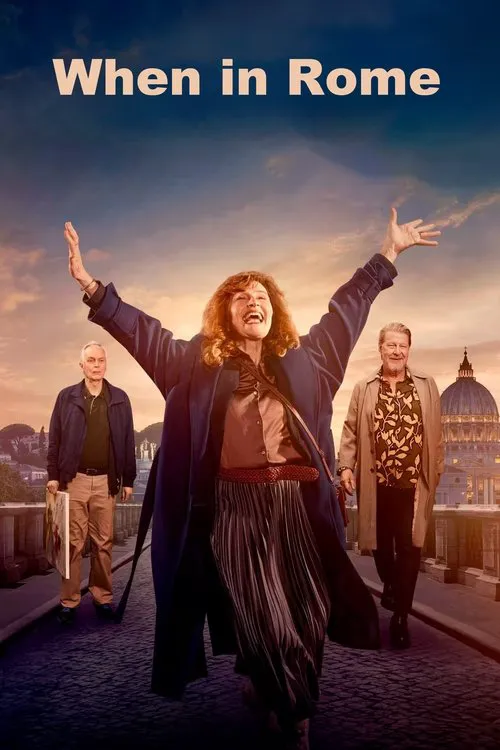When in Rome

Plot
The Italian city of Rome, with its rich history and art-filled streets, provides a poignant backdrop for the drama that unfolds in "When in Rome." For Gerda and Kristoffer, this trip is more than just a romantic getaway – it's a chance to relive memories and celebrate 35 years of marriage. As they stroll through the quaint streets of Rome, reminiscing about the past and planning their future, they are suddenly confronted with a face from Gerda's youth. Johannes, the charismatic art teacher who ignited her passion for the arts, appears out of nowhere, and the dynamics of their relationship are turned upside down. Initially, Johannes seems like a harmless acquaintance, someone who's known Gerda for years but has no qualms about making his presence felt in her life now. However, as the story progresses, it becomes clear that his intentions are far more complex. Johannes is a catalyst for Gerda to reassess her life, her relationships, and her aspirations. Gerda's obsession with Johannes, her former flame, sets off a chain reaction that disrupts the harmony of her marriage. Kristoffer, who has been the rock of her life for decades, finds himself on the sidelines as Gerda's infatuation grows. This has been the couple's first trip without their children, and Gerda had envisioned a romantic escape with her husband, reminiscing about their past and planning their future together. But as the trip unfolds, Gerda's preoccupation with Johannes leads her to abandon these plans and indulge in escapades of her youth. As Gerda navigates the cobblestone streets, attending art exhibitions and museums, she begins to reflect on her life choices. Why did she settle down so early? Why did she allow her passion for art to take a backseat to domesticity? Johannes, it seems, has awakened a part of her that she thought was long dead. Meanwhile, Kristoffer, feeling increasingly marginalized, struggles to come to terms with Gerda's transformation. He's hurt, but he's also worried – worried that their marriage is unraveling, worried that Gerda is abandoning him for a younger, more vibrant version of herself. As the tension between Gerda and Kristoffer builds, "When in Rome" becomes a poignant exploration of love, marriage, and identity. Is Gerda's infatuation with Johannes a midlife crisis or a genuine desire to rediscover herself? Does she genuinely believe that she's found true love again, or is she merely seeking validation? Johannes, with his charming smile and effortless artistic talent, seems to embody the freedom and creativity that Gerda's stifled. As she spends more time with him, she's reminded of the carefree days of her youth, when art was an all-consuming passion and the world seemed full of possibilities. However, beneath the surface, there are hints that Johannes is not what he seems. Perhaps he's as invested in Gerda's past as she is, using their reconnection as a way to relive his own youthful experiences. Or maybe he's simply a reflection of her own desires, a symbol of the life she could have had but chose not to pursue. As Gerda's obsession with Johannes threatens to destroy her marriage and her sense of identity, she's forced to confront the ghosts of her past. In doing so, she must make a choice: to hold onto the familiar comfort of her life with Kristoffer or take a leap of faith into the unknown with Johannes. The film's title, "When in Rome," is a clever play on words, referencing both the city that has provided the backdrop for Gerda's crisis and the Roman saying, "When in Rome, do as the Romans do." As Gerda navigates the complexities of her relationships, she's forced to adopt the same attitude – to be true to herself, even if it means challenging the status quo. The film's ending is left ambiguous, leaving the audience to ponder Gerda's ultimate choice. Will she return to the safety of her life with Kristoffer or follow her heart and take a chance on Johannes? The answer, much like Gerda's future, is uncertain, and it's this sense of uncertainty that makes "When in Rome" such a poignant exploration of love, identity, and the complexities of human relationships.
Reviews
Recommendations




